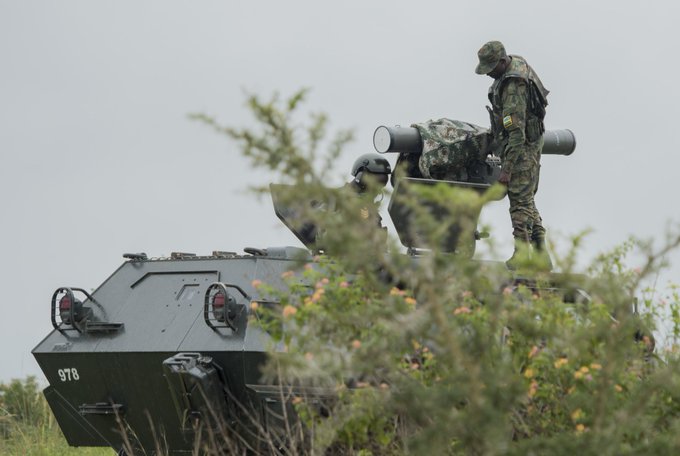Rwanda’s defensive measures along its border with the Democratic Republic of Congo (DR Congo) will remain in place until agreements to neutralize the FDLR militia are fully implemented, the country’s Minister of Foreign Affairs and International Cooperation, Olivier Nduhungirehe, has stated.
Speaking to the national broadcaster, RBA, Nduhungirehe emphasized Rwanda’s continued vigilance against security threats, including hate speech from Congolese officials, despite a recently signed agreement in Angola. The agreement, known as the Concept of Operations (CONOPS), outlines a roadmap for dismantling the FDLR and addressing Rwanda’s security concerns.

The FDLR, a militia formed by remnants of the perpetrators of the 1994 Genocide against the Tutsi, has been accused of integrating into the Congolese army to fight the M23 rebels in eastern DR Congo. Rwanda views this as a direct threat to its national security.
Nduhungirehe stated that Rwanda’s defensive measures at the border are “dynamic and proportionate” to the threats posed by the FDLR. These measures will only be lifted once the agreed-upon neutralization of the militia materializes.
The minister criticized inflammatory statements by Congolese officials, including remarks by DR Congo’s Minister of Justice, Constant Mutamba, who recently called for violence against Banyarwanda and Rwandan leaders. Speaking in Goma, Mutamba encouraged prisoners to report individuals linked to so-called “traitors,” promising them freedom in exchange for their cooperation. His statements, described as “bellicose” by Nduhungirehe, undermine diplomatic efforts to normalize relations between the two nations.
“This is the reason why we put in place those defensive measures,” Nduhungirehe said, stressing that the security measures would remain until the agreements are implemented.
The minister also highlighted the deep-seated issues fueling the crisis in eastern DR Congo, where over 200 armed groups operate. He called on the Congolese government to address the root causes of conflicts, including the marginalization and persecution of the Congolese Tutsi community.
“The M23 movement is a symptom of these unresolved problems,” Nduhungirehe said, pointing out that the Congolese government has failed to honor agreements with the M23 rebels, which aimed to integrate them into the national army.
While the Luanda agreement addressed the FDLR and Rwanda’s defensive measures, the issue of the M23 rebellion remains unresolved. Nduhungirehe urged DR Congo to engage in direct talks with the M23 to find a lasting solution to the crisis.
The M23 resurfaced in late 2021, nearly a decade after its initial defeat. The group claims to protect civilians from threats posed by militias like the FDLR and demands that the Congolese government honor previous integration agreements.
Rwanda maintains that genuine commitment from DR Congo is essential to implementing the agreements and resolving the ongoing crisis. The minister reiterated that addressing the FDLR threat, ensuring the security of Congolese Tutsi communities, and engaging in meaningful dialogue with the M23 are critical steps toward lasting peace in the region.

The situation remains tense as both nations navigate the complexities of their shared security concerns, with Rwanda standing firm on its defensive policies until tangible progress is made.



